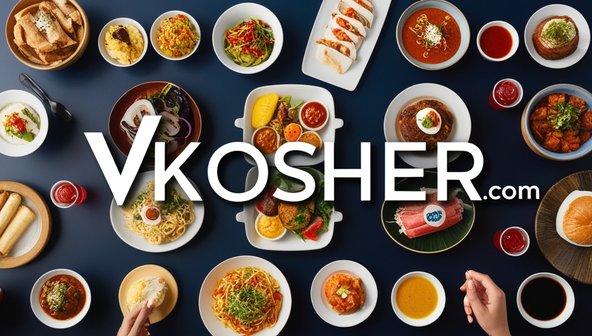Understanding Kosher Bread
Kosher bread is a product that adheres to the dietary laws of kashrut, which are a set of religious regulations prescribed in the Torah, governing the foods that Jewish people are allowed to consume and how those foods should be prepared. These laws are intricate, covering a wide range of ingredients and processes, and they are observed with great care by those who keep kosher. In the context of bread, these rules ensure that the bread is not only free from non-kosher ingredients but is also produced in a manner that aligns with Jewish religious principles.
The Foundations of Kashrut and Bread
The Torah outlines several key principles that define whether a food item is kosher. For bread, the ingredients and the production process are of utmost importance. Bread is a staple in many cultures, and for kosher-observant Jews, the availability of kosher bread is essential. To be kosher, bread must be made from ingredients that are themselves kosher, meaning they do not include any forbidden substances such as non-kosher animal fats, or milk mixed with meat products, as the Torah strictly prohibits the mixing of milk and meat.
Ingredients in Kosher Bread
The basic ingredients of bread—flour, water, yeast, and salt—are inherently kosher. However, complications arise when additional ingredients are introduced. Kosher bread must not contain any dairy products if it is to be considered "pareve," meaning it can be eaten with either meat or dairy dishes. This restriction is crucial as it allows for greater flexibility in meal planning and adherence to kosher dietary laws.
In addition to dairy, other ingredients such as sweeteners, emulsifiers, and preservatives used in commercial bread production must also be kosher-certified. This certification ensures that these ingredients do not contain or are not derived from non-kosher sources. For example, some emulsifiers are derived from animal fats, which must come from kosher animals slaughtered in a kosher manner, and must not be mixed with dairy to maintain pareve status.
The Role of Certification
Kosher certification is a key aspect of ensuring that bread is kosher. This certification is typically granted by a rabbinic authority or a kosher certification agency. These organizations inspect the production facilities, review ingredient lists, and oversee the production process to ensure that all aspects comply with kosher laws. A product that is certified kosher will bear a kosher symbol on its packaging, such as a "K" or "OU" symbol, which provides assurance to consumers that the bread meets kosher standards.
Challah: A Special Kosher Bread
One of the most well-known types of kosher bread is challah, a traditional Jewish bread eaten on the Sabbath and holidays. Challah is rich in symbolism and is often braided, symbolizing unity and continuity. The preparation of challah is deeply rooted in Jewish tradition, and it involves specific rituals, such as separating a small portion of the dough (called "hafrashat challah") and setting it aside as an offering. This practice dates back to the times of the Temple in Jerusalem and continues to be observed in Jewish homes today.
Challah can be made in a variety of ways, but to remain kosher, the ingredients must be certified, and the preparation must adhere to kosher laws. Traditionally, challah is made with eggs and sweetened with honey or sugar, giving it a rich, sweet flavor. However, in its pareve form, it is made without dairy, allowing it to be served with both meat and dairy meals.
Kosher Bread in the Modern Market
In today's market, the availability of kosher bread has expanded significantly. Many bakeries and commercial bread producers now offer kosher-certified options to meet the demand from kosher-observant consumers. This increase in availability is due in part to the growing awareness of kosher dietary needs and the expansion of kosher certification services.
In large cities with significant Jewish populations, kosher bread is readily available in supermarkets and specialty stores. In addition to challah, other types of bread, including rye, whole wheat, and gluten-free options, are available with kosher certification. This diversity allows those who keep kosher to enjoy a wide variety of bread while adhering to their dietary laws.
Challenges in Kosher Bread Production
Producing kosher bread can present several challenges, particularly for large-scale commercial producers. One of the primary challenges is ensuring that all ingredients used are kosher-certified. This requirement can be complicated by the fact that many bread additives, such as dough conditioners and preservatives, may be derived from non-kosher sources. Manufacturers must carefully source these ingredients and work closely with kosher certification agencies to ensure compliance.
Another challenge is maintaining kosher standards throughout the production process. In facilities that produce both kosher and non-kosher products, strict separation must be maintained to avoid cross-contamination. This separation includes using dedicated equipment and utensils for kosher production or thoroughly cleaning shared equipment according to kosher guidelines. Additionally, some kosher certification agencies require that a mashgiach (a supervisor trained in kosher laws) be present during the production process to oversee adherence to kosher standards.
The Importance of Pareve Bread
Pareve bread, which contains no dairy or meat ingredients, plays a crucial role in the kosher diet. Because kosher laws prohibit the mixing of meat and dairy, pareve bread can be consumed with both types of meals, providing versatility and convenience. For this reason, many kosher consumers prefer pareve bread, especially for everyday use.
To ensure that bread remains pareve, manufacturers must avoid using dairy ingredients such as butter or milk in the dough. Instead, they may use oil or water-based recipes to achieve the desired texture and flavor. Additionally, any flavorings or toppings used on the bread, such as seeds or spices, must also be pareve and kosher-certified.
Kosher Bread and Passover
During the Jewish holiday of Passover, the consumption of leavened bread is prohibited, and only unleavened bread, known as matzah, is eaten. This restriction is in remembrance of the Exodus from Egypt when the Israelites left in such haste that they did not have time for their bread to rise. Matzah is made from flour and water and must be baked quickly to prevent any leavening.
For bread to be kosher for Passover, it must meet even more stringent standards. The flour used must be watched from the time of harvest to ensure it does not come into contact with water, which could start the leavening process. The entire baking process is closely monitored to ensure that the dough does not rise, adhering to the tradition of eating unleavened bread during this holiday.
The Global Reach of Kosher Bread
Kosher bread is not only important in Jewish communities but has also gained popularity among non-Jewish consumers. Many people choose kosher bread because they perceive it to be of higher quality, due to the strict oversight in its production. Others may select kosher products for dietary reasons, such as the assurance that pareve bread contains no dairy, making it suitable for those with lactose intolerance.
The global kosher market has grown significantly, and kosher bread is now exported to many countries around the world. This growth has been facilitated by the establishment of international kosher certification agencies that ensure products meet kosher standards regardless of where they are produced.
The Future of Kosher Bread
As the demand for kosher products continues to rise, the future of kosher bread looks promising. Advances in food technology and production methods are likely to make it easier for manufacturers to produce kosher bread on a large scale while maintaining strict adherence to kosher laws. Additionally, the increasing diversity of kosher products means that consumers will have more options to choose from, including specialty breads such as gluten-free and organic kosher varieties.
The continued growth of kosher certification services will also play a key role in the future of kosher bread. These organizations help ensure that kosher standards are upheld in the face of new food technologies and global supply chains, giving consumers confidence in the products they purchase.
Conclusion
Kosher bread represents more than just a dietary choice; it is a symbol of adherence to religious traditions and laws that have been observed for millennia. From the careful selection of ingredients to the meticulous production processes, every aspect of kosher bread is designed to meet the rigorous standards of kashrut. As the demand for kosher products grows, the availability and variety of kosher bread will continue to expand, offering consumers more choices while maintaining the integrity of this ancient practice.



